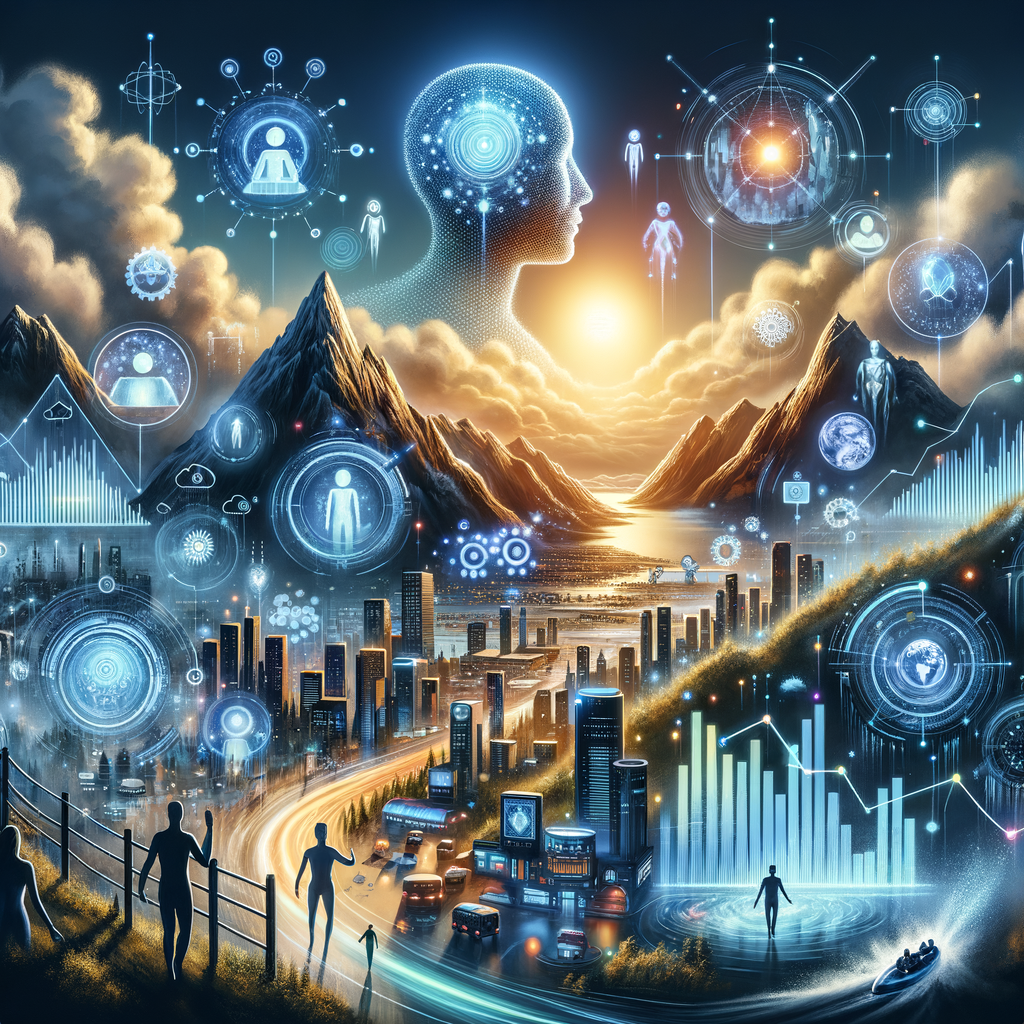From automating tasks to revolutionizing industries, AI agents are here. They’re rapidly changing how we live and work. But what are AI agents, and how will they impact your business and daily life? This article explores this new frontier in artificial intelligence, from its core technology to real-world applications shaping our future. AI agents are poised to become seamlessly integrated into our lives, changing how we interact with the digital world.
Understanding AI Agents
AI agents aren’t just chatbots. They’re sophisticated autonomous systems designed to perform tasks or make decisions independently. Think of them as your highly efficient digital workers, capable of completing tasks or making decisions. AI agents can interact with software, gather data, and even take action based on user instructions and their knowledge base. Unlike chatbots, which mainly offer text-based responses, AI agents work by executing actions.
How AI Agents Work
AI agents typically follow a simple process, starting with user provided instructions. They break down tasks into smaller, manageable steps, then gather necessary data and utilize any available tools. They execute tasks based on this information and their internal knowledge stores. It’s an automated approach to work.
AI Agents are Here: Reshaping Industries
The rise of AI agents is impacting various sectors, from customer service to healthcare. Businesses use AI agents to automate repetitive tasks, streamline business processes, and boost productivity. AI shopping assistants are already transforming retail, offering personalized recommendations and streamlining the shopping experience. In customer service, AI agents provide instant support, handling inquiries, and resolving issues, freeing up human agents to focus on more complex problems. AI agents analyze data, improving accuracy and efficiency across various industries.
Examples of AI Agents in Action
- Customer Service: AI-powered chatbots offer 24/7 customer support, answering questions and resolving simple issues.
- Healthcare: AI agents assist with medical diagnoses, analyze medical images, and personalize treatment plans.
- Finance: AI agents analyze market trends, manage portfolios, and detect fraudulent activities.
- E-commerce: AI-powered shopping assistants offer personalized product recommendations and help customers quickly find what they need.
The Opportunities and Challenges of AI Agents
AI agents offer exciting opportunities. However, potential challenges, such as data privacy and security, must be addressed. As AI agents collect and analyze large amounts of data, protecting sensitive information is crucial. Other concerns include potential job displacement, algorithmic bias, and the need for appropriate human oversight.
| Opportunities | Challenges |
|---|---|
| Increased efficiency and productivity | Data privacy and security |
| Automation of tedious tasks | Job displacement concerns |
| 24/7 availability | Bias in algorithms |
| Enhanced customer experience | Lack of human interaction |
The Future of AI Agents
As AI technology evolves, expect more sophisticated AI agent capabilities. Multi-agent systems, where groups of AI agents cooperate on complex objectives, are on the horizon. These systems, powered by large language models, can handle complex tasks, offering a range of specialized functions to aid each agent. This could revolutionize fields like scientific research, software development, and supply chain management, leading to fully autonomous AI systems.
OpenAI CEO Sam Altman and other tech companies are at the forefront of AI development, pushing the boundaries of what’s possible with agentic AI. The rise of autonomous agents and the latest news in advanced AI point to a future where AI systems can perform tasks autonomously and continuously learn.
While science fiction often portrays fully autonomous AI, the reality is that human intervention and emotional intelligence remain important aspects of AI development. AI researchers in San Diego and other tech hubs are working to improve the accuracy and reliability of AI models, ensuring that these powerful tools are used responsibly. Companies seeking to stay competitive need to create agents that can adapt to the ever-changing business landscape. AI assistants and autonomous systems offer a wide range of benefits for product management and customer interactions.
FAQs about AI Agents are Here
What is an AI agent?
An AI agent is an autonomous software program. It carries out tasks or makes decisions independently. This is based on collected data and its own knowledge base. AI agents offer a wide range of potential benefits, but also require careful consideration of ethical and practical challenges.
Conclusion
AI agents are here to stay. Their transformative impact on businesses and everyday life is undeniable. This new era presents remarkable opportunities for businesses and individuals. AI agents offer advantages and potential stumbling blocks for companies, software development, scientific advancements, and more. By understanding the potential and challenges, businesses can successfully navigate this evolving AI landscape. Responsible development and deployment are crucial to harnessing the full potential of this groundbreaking technology. This involves ethical considerations regarding data usage, ensuring data privacy and combating potential misuse.






